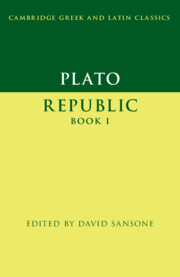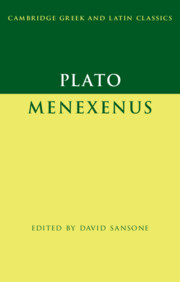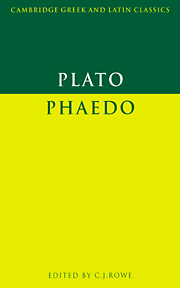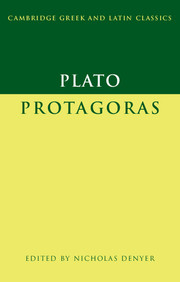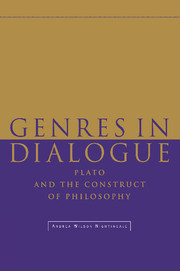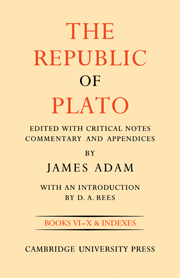Plato: Republic Book I
£22.99
Part of Cambridge Greek and Latin Classics
- Date Published: September 2023
- availability: Available
- format: Paperback
- isbn: 9781108970471
£
22.99
Paperback
-
Plato's Republic is a central text in the Western philosophical tradition and also a specimen of its author's exceptional literary and dramatic skill. The first book introduces, and conspicuously fails to answer, the question: What is justice? It also introduces the sophist Thrasymachus, who is quite certain that he knows what justice is, namely that it is nothing other than what the dominant power in the state considers to be in its own interest. The contentious confrontation between Thrasymachus and Socrates sets the stage for Plato's controversial construction of an ideal state in which the true nature of justice will be revealed. The Commentary draws attention to the way Plato anticipates developments in later books, thus serving as an introduction to Republic as a whole. Particular attention is paid to Plato's language and style, so that students of Greek literature as well as philosophy are well served.
Read more- Provides summaries of Plato's argument and references to representative secondary literature in order to help orient students of Greek literature, while discussions of the language seek to clarify Plato's thinking
- Highlights the literary character of Book I, presenting it as a dramatic encounter between two colorful individuals and providing the context of other discussions of justice in Greek literature
- Explains in full the background to the historical and political setting of Republic, which will particularly benefit students of philosophy
Reviews & endorsements
'The Commentary does not assume any great knowledge of Greek among its readers, and any and all potential grammatical or syntactical problems are handled with admirable clarity.' Colin Leach, Classics for All
See more reviews'The volume brings out Plato's stunning variety of ideas, moves, provocations, and dubious spans of argumentation. It draws from an attractively eclectic variety of literature, much of it from the past three decades though with choice older works … Any philosopher or classicist should consult it continuously when studying, writing about, or teaching the dialogue.' Christopher Moore, Bryn Mawr Classical Review
Customer reviews
Not yet reviewed
Be the first to review
Review was not posted due to profanity
×Product details
- Date Published: September 2023
- format: Paperback
- isbn: 9781108970471
- length: 320 pages
- dimensions: 215 x 139 x 15 mm
- weight: 0.27kg
- availability: Available
Table of Contents
Introduction
Plato: Republic Book I
Commentary.
Sorry, this resource is locked
Please register or sign in to request access. If you are having problems accessing these resources please email [email protected]
Register Sign in» Proceed
You are now leaving the Cambridge University Press website. Your eBook purchase and download will be completed by our partner www.ebooks.com. Please see the permission section of the www.ebooks.com catalogue page for details of the print & copy limits on our eBooks.
Continue ×Are you sure you want to delete your account?
This cannot be undone.
Thank you for your feedback which will help us improve our service.
If you requested a response, we will make sure to get back to you shortly.
×
